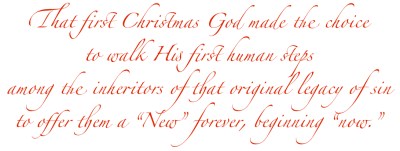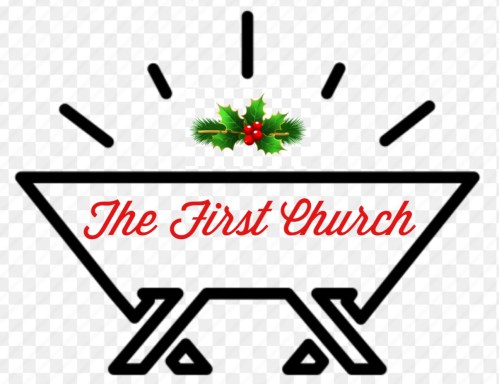We record life based on years, but what makes a year New? Really each additional year ties together the as-yet unknown of the future year with the leftover realities of the previous year. So describing it as “New” isn’t quite accurate. It’s those leftover realities that often prompt us to make a “new year’s” resolution. That also is an inaccurate way to describe our hopeful yearning between the transition of one year ending and another beginning. We need a vision! Those who’ve pledged their heart to following the Creator’s Vision of the New Beginning whose birth we’ve just celebrated know it’s that Vision of life, not a new year or a new resolution that ties together the realities of the past with the unknown future to allow 2024 to become the reality of hope for a truly
Be Thou My Vision
Be Thou my vision, O Lord of my heart
Naught be all else to me, save that Thou art
Thou my best thought, by day or by night
Waking or sleeping, Thy presence my light
Be Thou my wisdom, and Thou my true word
I ever with Thee and Thou with me, Lord
Thou my great Father, and I Thy true son
Thou in me dwelling and I with Thee one
Riches I heed not, nor vain, empty praise
Thou mine inheritance, now and always
Thou and Thou only first in my heart
High King of heaven, my treasure Thou art
High King of heaven, my victory won
May I reach heaven’s joys, O bright heaven’s sun
Heart of my own heart, whatever befall
Still be my vision, O ruler of all












